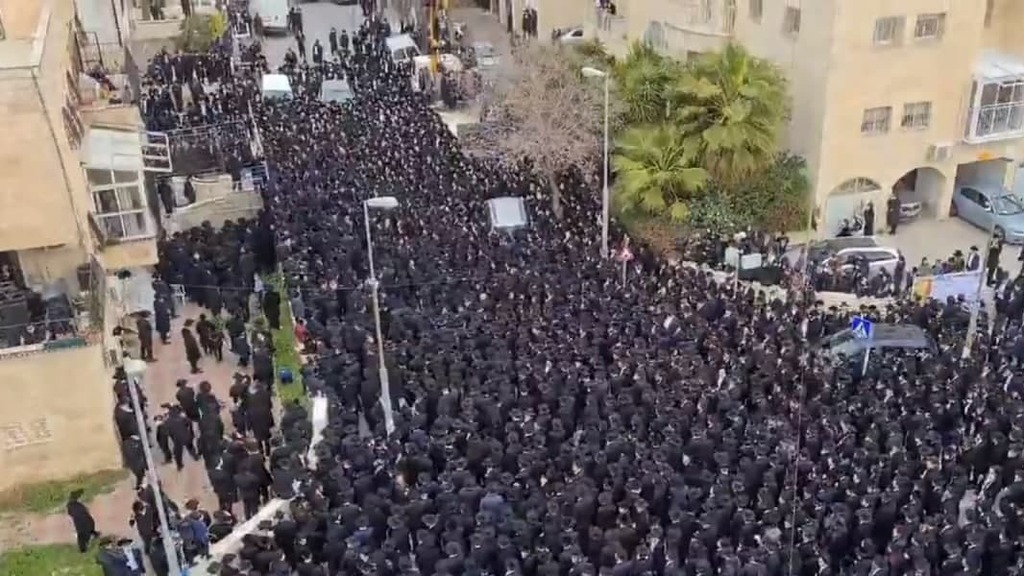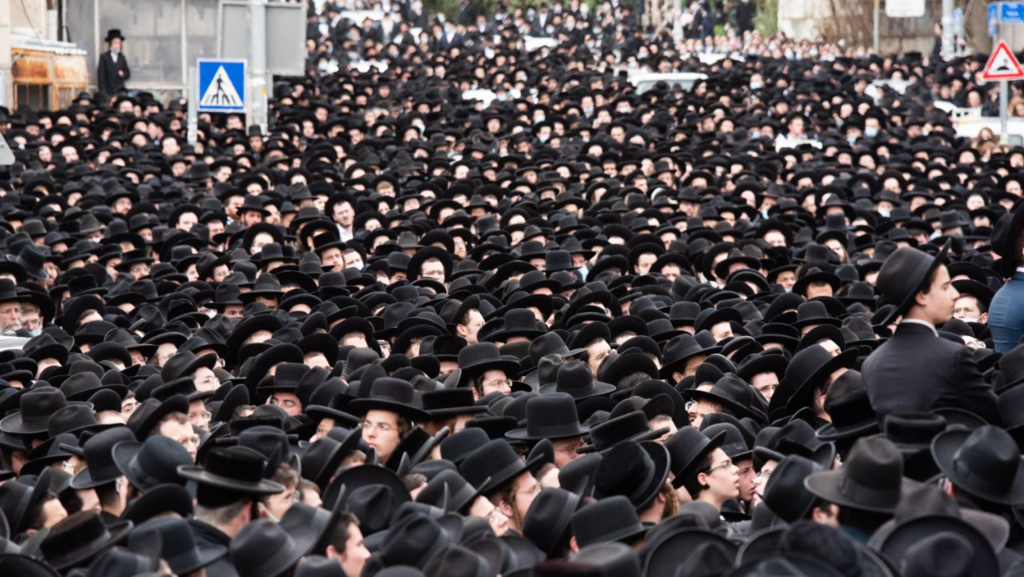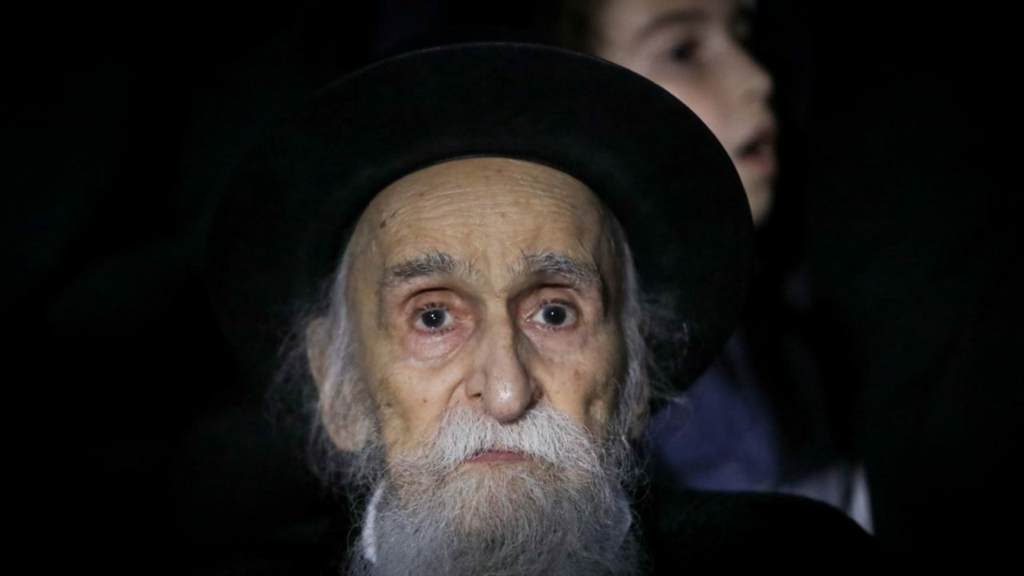Getting your Trinity Audio player ready...
Thousands participated Sunday in the funeral a prominent rabbi in Jerusalem in violation of coronavirus regulations, as police forces were nowhere to be seen.
Rabbi Meshulam Dovid Soloveitchik, who headed the Brisk yeshivas in the capital, died Saturday of coronavirus at the age of 99. He was a member of a respected rabbinical dynasty and revered by all Haredi factions.
The funeral procession wended its way through the streets of Jerusalem in the latest display of ultra-Orthodox Israelis' refusal to honor coronavirus restrictions. Police estimated that more than 10,000 people joined the procession and said they had issued dozens of tickets for failing to heed lockdown rules.
Police officials said earlier they were in talks with religious leaders in an effort to stop massive participation in the funeral procession, which did not appear to yield any results.
Densely packed throngs of people gathered outside the rabbi's home, ignoring restrictions on outdoor gatherings of more than 10 people. Many did not wear masks. Thousands of black-garbed ultra-Orthodox funeral-goers coursed past the city's main entrance toward the cemetery where Soloveitchik was to be buried.
A handful of police officers blocked intersections to traffic to allow participants to pass, but appeared to take no action to prevent the illegal assembly.
Funeral of Rabbi held in violation of all health regulations in Jerusalem
Police officials for their part said that violations of health regulations are prevalent in all sectors of the public. They claimed that over the past weekend, lockdown violations were recorded in Jerusalem and Tel Aviv, where a woman confirmed to have contracted COVID-19 hosted a house party.
A disproportionate number of Israel's coronavirus cases are within the ultra-Orthodox minority. The strictly religious community, which makes up around 11% of Israel's 9.2 million people, has been accounting for about 40% of the new cases.
Some in recent days have also held mass events, celebrating weddings and holding court for their flock, all with crowds that were mostly without masks or any social distancing.
Last week Haredi rioters clashed with police and set a city bus on fire with the driver and five passengers fleeing for their lives.
3 View gallery


Funeral of Rabbi Meshulam Dovid Soloveitchik attended by thousands in violation of coronavirus health regulations
(Photo: Rafi Rudnick)
Many ultra-Orthodox sects have also kept schools, seminaries and synagogues open in violation of lockdown restrictions that have closed schools and many businesses in other parts of the country.
Ultra-Orthodox leaders say they have been unfairly singled out and argue the country's secular public does not understand the importance of public prayers and religious studies in their community. They claim the scofflaws are a small part of their diverse community, and blame crowded living conditions for the outbreak.
Associated Press contributed to this report
First published: 12:20, 01.31.21






